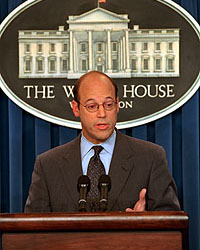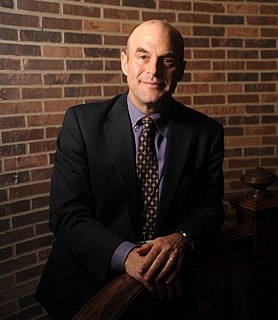A Quote by John Roberts
Senator, my answer is that the independence and integrity of the Supreme Court requires that nominees before this committee for a position on that court not forecast, give predictions, give hints, about how they might rule in cases that might come before the Supreme Court,.
Related Quotes
In fact, Native American Rights Fund has a project called the Supreme Court Project. And quite frankly, it's focused on trying to keep cases out of the Supreme Court. This Supreme Court, Justice Roberts is actually, hard to believe, was probably worse than the Rehnquist Court. If you look at the few decisions that it's issued.
The notion that the Supreme Court comes up with the ruling and that automatically subjects the two other branches to following it defies everything there is about the three equal branches of government. The Supreme Court is not the supreme branch. And for God's sake, it isn't the Supreme Being. It is the Supreme Court.
Class warfare always sounds good. Taking action against the rich and the powerful and making 'em pay for what they do, it always sounds good. But that's not the job of the Supreme Court. The Supreme Court standing on the side of the American people? The Supreme Court adjudicates the law. The Supreme Court determines the constitutionality of things and other things. The Supreme Court's gotten way out of focus, in my opinion.
I am very proud of our Supreme Court - it is one of the best worldwide. Nevertheless, since the 1990s, we have seen a certain imbalance in the relationship between the judiciary, the parliament and the government. The Supreme Court behaved in an activist way. We have to debate the degree to which such Supreme Court activism is appropriate.
I don't want to get into predicting how Judge Gorsuch would vote on the Supreme Court as a Justice Gorsuch. But I will say that those of us who've seen him in court as a judge, those of us who have worked with him as I have on a appellate rules committee, understand that this is a man who brings independence and integrity to the job.
Here is what Hillary Clinton said. Crooked Hillary said, "You know, when we talk about the Supreme Court" - fake smile - "it really raises the central issue in this election, namely what kind of country are we going to be." Well, she's right about that, actually, but not in the way she means. "What kind of opportunities will we provide our citizens." The Supreme Court's not about that. Supreme Court is the law, and their cases are not about opportunities being provided for our citizens.































